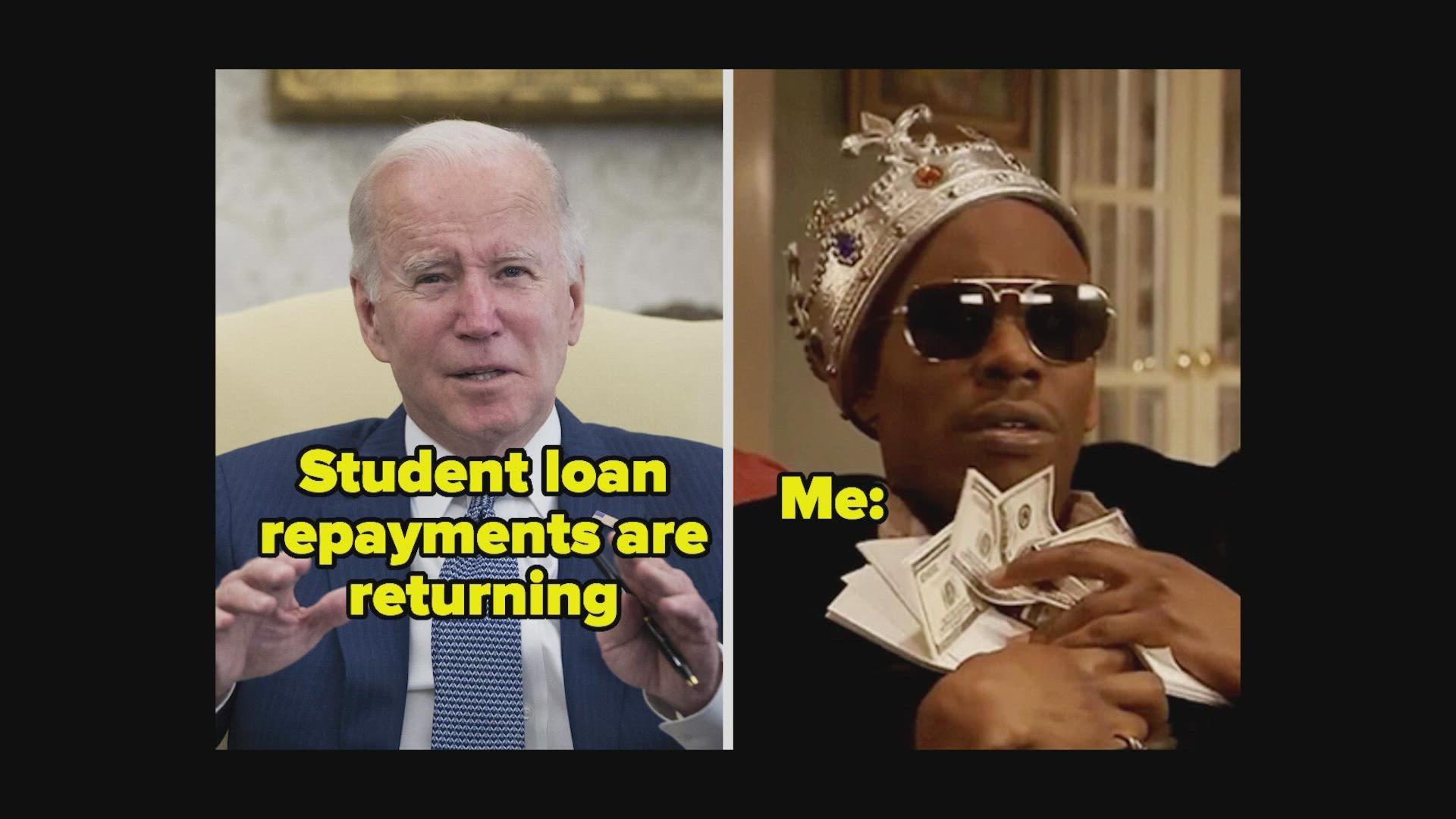DALLAS — On Wednesday, President Biden announced another extension for the freeze on federal student loan collection. The program started in March 2020, putting a pause on payment collection and incurred interest, to protect borrowers from additional financial hardship during the pandemic.
This is the sixth time the freeze has been extended since it was put in place under former President Donald Trump.
For Cathy DeWitt Dunn, a financial advisor with DeWitt & Dunn Financial Services in Addison, the freeze is the ideal time for borrowers to either take advantage of interest-free payments or prepare to be in a good position to make payments once the the freeze is lifted.
“Now is really the time to refocus on your financial future and get a plan in place to address this," DeWitt Dunn said. "If you have a federal loan, which is different than a private loan, you are going to have to pay this back at some time.”
While social media swirls with joking memes about never paying the debt back and waiting for it to "disappear", DeWitt Dunn said ignoring payments will have a long-lasting impact.
"Everything’s going to be more expensive for you down the road," DeWitt Dunn said. "Whether it’s a house...a car…credit cards."
DeWitt said, even before the pandemic, people who had defaulted on their loans who were receiving Social Security payments, were already facing financial backlash with the government withholding money from their checks.
Wednesday's announcement also came with the news that U.S. Department of Education will also clear the slate for the nearly 7 million Americans who are in a delinquency situation, or who had defaulted on their loans. This means that once payments are due again, those borrowers will be in good standing instead of having to try to pay themselves out of an even larger deficit.
“Most American people are in a better shape financially than they have ever been, partly because the economy has come back pretty strongly from the early days of the pandemic," SMU Economics Director Cullum Clark said.
Clark also attributed Americans' overall financial state to a number of programs and initiatives created during the pandemic to help shield the nation from financial hardship.
However, he said the conversation about student loan debt is made up of two strong arguments that come down to ideology.
“That’s a big philosophical argument and what’s interesting is that neither of those arguments have very much to do with the pandemic at all," Clark said.
He said the debate surrounding cancelling federal student loan debt is the idea that many people who took out loans are doing financially better than the general population and can afford to pay their loans. He said the other argument is that many people with loan debt face financial hardship, and lifting the debt would create a more even playing field.
However, Clark pointed out that lawmakers have not made moves to cancel student loan debt, despite calls for measures like canceling $50,000 per borrower and even canceling all federal student loan debt.
“As of right now, there’s not a lot of evidence that [Biden] and the administration want to go down to full forgiveness," Clark said. "That could change, obviously.”
While neither Clark or DeWitt Dunn, or anyone else, knows for sure whether or not the debt be canceled or how many more extensions, if any, there will be, Clark said there's no denying the $1.6 trillion price tag attached the federal loan debt.
“It’s owed to the government which, in some sense, means it’s owed to the tax payers," Clark said.
He said clearing the debt would create a larger federal deficit in the future, and the U.S. already has a large federal deficit. The solution to that could come in the form of higher taxes or the federal government pulling back in a different area.
"All of us economists believe, for the most part, there’s no such thing as a free lunch, so I don’t really think there’s such thing as a future where you can make all of the people who owe the 1.6 trillion dollars better off by 1.6 trillion and not have anyone else worse off," Clark said.

